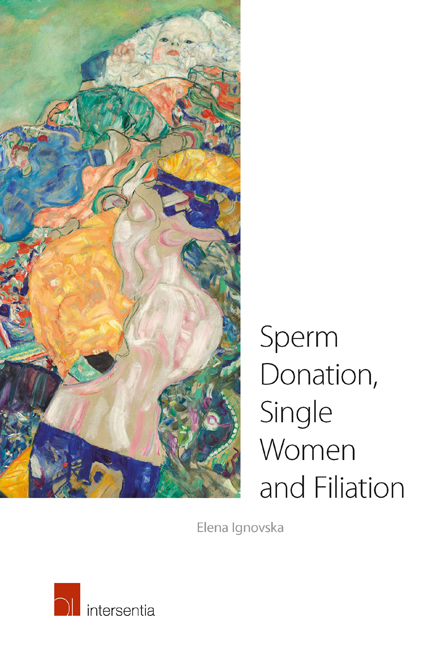Book contents
- Frontmatter
- Dedication
- Foreword
- Contents
- List of Abbreviations
- Introduction
- PART I MAPPING THE TERRAIN FROM AN INTERDISCIPLINARY AND INTERNATIONAL PERSPECTIVE
- PART II THE LEGAL, ETHICAL AND SOCIOLOGICAL POSITIONS OF THE PARTICIPANTS
- PART III LEGAL WAYS OF ESTABLISHING FATHERHOOD
- Chapter 7 Establishing Fatherhood through an International Prism
- Chapter 8 Applying the Results of the Analysis in the Case of the Republic of Macedonia
- References
Chapter 8 - Applying the Results of the Analysis in the Case of the Republic of Macedonia
from PART III - LEGAL WAYS OF ESTABLISHING FATHERHOOD
Published online by Cambridge University Press: 12 December 2017
- Frontmatter
- Dedication
- Foreword
- Contents
- List of Abbreviations
- Introduction
- PART I MAPPING THE TERRAIN FROM AN INTERDISCIPLINARY AND INTERNATIONAL PERSPECTIVE
- PART II THE LEGAL, ETHICAL AND SOCIOLOGICAL POSITIONS OF THE PARTICIPANTS
- PART III LEGAL WAYS OF ESTABLISHING FATHERHOOD
- Chapter 7 Establishing Fatherhood through an International Prism
- Chapter 8 Applying the Results of the Analysis in the Case of the Republic of Macedonia
- References
Summary
MAPPING THE TERRAIN FOR THE DISCUSSION
The lenses for the perception of reproduction in the Western and Eastern European countries are different. While in general the Western countries consider the project of having children as a matter of personal choice made by individuals or couples, in the Eastern countries, reproduction can also be perceived as a social obligation, providing continuity on a small scale of the family name, and on a large scale of the nation. Therefore, in the Eastern European countries parenthood has deeper social roots that go along with more severe consequences of involuntary childlessness. A pronatalist society usually has the justification for such policy in the wider nation-state ideology, instead of individual well-being and self-fulfilment. This is consistent with Foucault's premises that reproductive sexuality has turned into a domain of collective anxiety and state intervention due to the fact that the future of our species and our nation depends on it. The policy of prioritising the greater public good over the individual is covered by linking a person's social and moral worth to reproduction.
On a general level, the perception is that sperm and oocyte donation are more easily available in the Eastern European than in the Western European countries. This perception makes the Eastern European countries be considered favourable destinations for those seeking cross-border reproductive treatments. Some studies have recorded large numbers of patients from Austria, Italy, Germany and the UK travelling to more recently joined European Union Member States such as Czech Republic and Slovenia (2004) to seek medical care. The reasons are associated with favourable legislative environment, accompanied with implemented EU Directives for quality and safety, as well as the lower prices for medical care. Another reason for putting Eastern European countries on the map for cross-border reproductive tourism for these authors is the firmly accepted anonymity of the donors (five countries allowing non-identifying information, while only three countries allow identifying information of the donors). For some other authors, the most common reasons for travelling for reproductive purposes is law evasion when the technique is either forbidden per se or when a particular group is excluded from treatment. There may also be some other access limitations, such as long waiting lists, poor quality or expensive treatments.
- Type
- Chapter
- Information
- Sperm Donation, Single Women and Filiation , pp. 307 - 346Publisher: IntersentiaPrint publication year: 2015

